Body Lift in Israel
Find the best clinics for Body Lift in Israel
No pricing info available
Philippines offers the best prices Worldwide
Price: $ 216
From 109 verified reviews
Y N, 22 September 2020
Excellent medical center, with friendly staff and highly qualified doctors.Thank you for your work.My operation was successful
From 126 verified reviews
Y Jilani, 19 September 2020
A huge academic hospital serving the greater jerusalem area, world class health professionals and good location and amenities!
From 122 verified reviews
fadi hreaz, 27 August 2020
Hospital gives reasonable treatment but poor sorting
Tel Aviv Sourasky Medical Center (Ichilov Medical Center), located in Arison New Hospitalization Building, Tel Aviv, Israel offers patients Body Lift procedures among its total of 428 available procedures, across 29 different specialties. Currently, there's no pricing information for Body Lift procedures at Tel Aviv Sourasky Medical Center (Ichilov Medical Center), as all prices are available on request only. There are many specialists available at the Clinic, with 13 in total, and they are accredited by JCI Accredited
Compare Before & After Photos of _procedure_photos.phpBody Lift

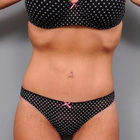
Front view

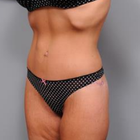
Half-side view
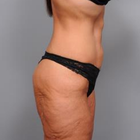
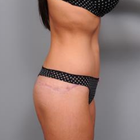
Full-side view
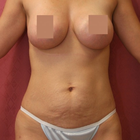

Front view
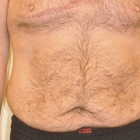
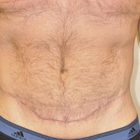
Front view
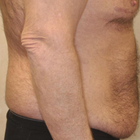
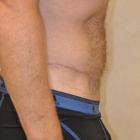
Half-side view
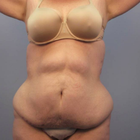
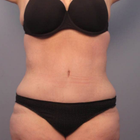
Front view
WHY US?
At Medijump, we're making medical easy. You can search, compare, discuss, and book your medical all in one place. We open the door to the best medical providers worldwide, saving you time and energy along the way, and it's all for FREE, no hidden fees, and no price markups guaranteed. So what are you waiting for?

Free

Best Price

Widest Selection

Risk-Free
What you need to know about Body Lift in Israel
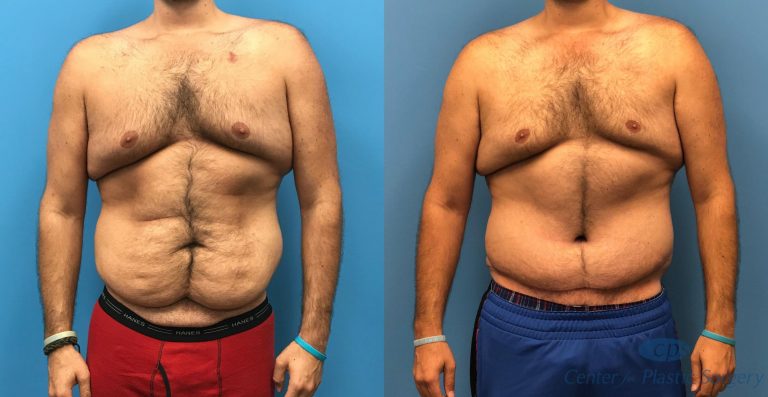
If you're considering a Body Lift procedure, you can trust the skilled surgeons in Israel to refine your body contours. This operation primarily aims at removing excess sagging skin and fat, commonly post significant weight loss. The entire process can take anywhere between 3-7 hours.
Having a detailed discussion with the surgeon before the procedure ensures that the patient is fully aware of what the procedure entails, risks involved, post-surgery care, and changes to anticipate.
What is the cost of Body Lift in Israel?
The cost for Body Lift surgery varies widely in Israel, typically ranging around $15,000 to $30,000. These costs include a myriad of factors such as the surgeon’s charges, anesthesiology, operating room costs, and any other additional expenses required like specialised equipment or scar reduction creams.
However, it’s crucial to prioritise quality and safety over cost when deciding to go ahead with the procedure. After all, your physical well-being and self-confidence are invaluable.
What does a Body Lift Procedure Involve?
A Body Lift procedure is conducted under general anaesthesia wherein the surgeon makes specific incisions around the lower waist and upper thigh region to remove excess skin. Often, other procedures like liposuction can be undertaken to eliminate persistent fat deposits. Moreover, supplementary procedures such as liposuction can also be employed to get rid of persistent fat deposits, thus achieving a more defined body silhouette. After achieving the desired results, the incisions are meticulously sealed off using sutures, skin adhesives, or surgical tapes.
Bear in mind, while we have tried to explain the process, every Body Lift procedure is unique to the individual being treated. Therefore, the procedure's length and exact practices may vary depending on the patient's health status and the extent of sculpting required. It is this personalized approach that ensures the optimal outcome and patient satisfaction. Therefore, an in-depth consultation with your surgeon is necessary to fully understand the procedure's depth and commitment required.
How Long Should I Stay in Israel for a Body Lift Procedure?
The timeline of your stay in Thailand for a Body Lift operation largely hinges on numerous factors. These can include preparation leading up to the surgery, your rate of healing, and the requirement for supplementary treatments. As a general rule, a Body Lift surgery is executed within a single day. Depending on how swiftly you recover and your overall well-being, you might be discharged on the same day or necessitate an overnight stay for observation.
Further, it's typically advantageous to continue your stay in Thailand for a period following the procedure. During this time, any follow-up appointments can be attended, and sutures, if used, may be safely removed. This post-surgery process can last for about a week or two, but a precise time frame can be given only after discussions with your treating physician. Prioritising a thorough recovery process is central to obtaining the best surgical results and minimising the possibility of complications.
What's the Recovery Time for Body Lift Procedures in Israel?
Getting through a Body Lift Procedure in Israel is only the beginning. The following weeks will be all about healing and recovery. Much like with every major surgery, the healing period varies with each person—it's comprehensively individual. But if we're to talk numbers and averages, the initial recovery phase usually lasts between about two weeks to a month. During these weeks, it's completely normal to experience some puffiness, bruising, and even some discomfort.
However, while the initial healing phase could be measured in weeks, complete healing can be slightly more extended—extending up to six months. The journey can be long, indeed. But remember, patience and discipline are what will get you through. You should take it easy and avoid heavy physical activities; instead, focus on eating right and sleeping well as this aids the speedy recovery. Of course, your doctor will be there to guide you, providing all the necessary instructions and advice relating to medications, wound care, and what to look out for. And they'll tell you this too sticking to these instructions is absolutely essential for a successful recovery.
What's the Success Rate of Body Lift Procedures in Israel?
Body Lift surgeries conducted in Israel have consistently demonstrated an outstanding degree of success, largely creditable to the skill set of seasoned surgeons located in the region. Here, the word 'success' extends beyond the visible physical improvements observed post-surgery. It further includes the intangible yet significant gains such as a surge in self-esteem and overall enhancement in the way of life that patients commonly report following the procedure.
However, it's vital to take note that the results of this procedure are not exclusively in the hands of our accomplished healthcare professionals. Patient participation is a key factor in ensuring a good outcome. Adherence to the advice given by the physician before and after the surgery, commitment to a healthful lifestyle, and holding realistic goals regarding the outcome of the surgery are critical aspects in the pursuit of a satisfactory and enduring outcome. In essence, the surgical outcome relies on a two-way relationship – the medical proficiency of the surgeon coupled with the patient's dedication towards their health and welfare.
Are there Alternatives to Body Lift Procedures in Israel?
Though body lift surgeries are widely recognized for their effectiveness in enhancing body contours, they don't stand alone as the sole solution. In Israel, you'll discover a variety of non-surgical and less invasive treatments for both skin tightening and body reshaping. These include:
- Laser therapies: This approach doesn't require any operation or invasive method. It uses a specific kind of light source (an infrared laser) to heat the collagen, a protein situated under your skin. This heating effect causes the skin to contract, leading to a tightened feel and look.
- Radiofrequency therapies: This harmless procedure triggers collagen production and the contraction of tissues through radio waves. As a result, your skin becomes firmer and gets a rejuvenated glow. It also helps reduce wrinkles and sagging.
- Cryolipolysis (CoolSculpting): This treatment cools down fat cells to a temperature that alters their structure until your body naturally gets rid of them.
- Liposonix: This method engages a non-invasive, high-intensity ultrasound technology to eliminate specific sections of fat beneath your skin, delivering consistent and expected results.
It's important to remember that while these treatments can provide significant benefits, they may not achieve the same long-lasting and striking results as a Body Lift procedure. Therefore, it is always best to consult with an experienced surgeon or healthcare professional in Israel to get advice tailored to your specific needs and circumstances.
What sort of Aftercare is Required for Body Lift Procedures in Israel?
Successful recovery from a body lift procedure in Israel requires diligent aftercare. Post-procedure recommendations often include:
- Wound Care: Regularly cleaning and dressing the surgical wounds as advised by the healthcare provider.
- Medications: Taking prescribed medications timely to manage pain and prevent infections.
- Restrictions on Activities: Refraining from vigorous physical activities for at least a few weeks after surgery to allow the body time to heal.
- Hydration and Nutrition: Maintaining a well-balanced diet high in proteins and staying hydrated to facilitate healing.
- Follow-Up Consultations: Attending regular follow-up appointments with your healthcare provider to monitor the healing progress and address any complications at their earliest.
Remember, every individual has different healing rates, and commitment to the aftercare guidelines will ensure faster recovery and better results.
Can Body Lift Procedure Improve the Overall Health?
Beyond enhancing one's figure, a Body Lift Procedure positively impacts overall health and mobility. It helps combat skin problems like rashes and infections and improves body mobility by eliminating excess skin.
And let's not forget the mental well-being link here. This surgery can give self-confidence a giant boost and can have you feeling better about how you look, contributing to your mental health in a big way.
However, this procedure is not a shortcut to weight loss—it should ideally be performed once significant weight loss has already taken place. As with all surgical procedures, the decision should be made under the guidance of healthcare professionals, weighing the benefits against the risks.
Can Body Lift be Combined with Other Procedures?
Combining a Body Lift with other surgeries like breast enhancement or facial beautification is common practice in the field of cosmetic surgery. This technique yields a significant advantage of a single recovery process and reduced overall costs.
However, this decision rests on the patient's overall health condition and the complexity of the involved procedures. Therefore, we recommend having an in-depth discussion with your chosen surgeon to weigh your options.
What's the Impact of Weight Fluctuation After a Body Lift?
Significant weight changes after a Body Lift procedure can profoundly impact the aesthetic results and possibly present health risks. The effects of such weight changes typically include:
- Weight Gain: Substantial weight gain post-surgery can cause the skin and tissues to stretch again, negatively affecting the improved body contour achieved from the procedure.
- Weight Loss: On the flip side, extreme weight loss can lead to additional sagging and loose skin, diminishing the aesthetic improvements from the body lift.
Maintaining a stable and healthy weight is key to preserving the benefits of this procedure. Achieving this entails:
- Balanced Diet: Consistently adhering to a nutritionally balanced, portion-controlled diet.
- Regular Exercise: Engaging in regular, moderate physical activities to aid in maintaining your weight.
A body lift procedure, however, is not a replacement for a healthy lifestyle or a weight-loss solution. It should ideally be performed post-significant weight loss to help reshape and redefine the body contours. As with any surgical procedure, it's essential to have the guidance and approval of your healthcare provider to ensure optimum results and uphold your safety.
Is the Body Lift Procedure Safe for Older Adults?
Age isn't necessarily a determinant for whether someone can undergo a Body Lift operation; it's all down to their overall health and fitness. Even though healing might be slower in the elderly, and they may have a higher risk of surgical complications, they are not necessarily exempt from considering this procedure.
Therefore, it's crucial to have a comprehensive medical evaluation and a thorough discussion with the healthcare provider about the expected results versus the potential risks involved.
Whilst the information presented here has been accurately sourced and verified by a medical professional for its accuracy, it is still advised to consult with your doctor before pursuing a medical treatment at one of the listed medical providers
No Time?
Tell us what you're looking for and we'll reachout to the top clinics all at once
Enquire Now

Popular Procedures in Israel
Prices Start From $113

Prices Start From $208

Prices Start From $600

Prices Start From $70

Prices Start From $111

Prices Start From $28

Prices Start From $120

Prices Start From $931

Prices Start From $275

Prices Start From $76

Prices Start From $236

Recommended Medical Centers in Israel for Body Lift

- Interpreter services
- Translation service
- Religious facilities
- Medical records transfer
- Medical travel insurance
- Health insurance coordination
- TV in the room
- Safe in the room
- Phone in the room
- Private rooms for patients available

- Interpreter services
- Translation service
- Religious facilities
- Medical records transfer
- Medical travel insurance
- Health insurance coordination
- TV in the room
- Safe in the room
- Phone in the room
- Private rooms for patients available

- Interpreter services
- Translation service
- Religious facilities
- Medical records transfer
- Medical travel insurance
- Health insurance coordination
- TV in the room
- Safe in the room
- Phone in the room
- Private rooms for patients available

- Interpreter services
- Translation service
- Religious facilities
- Medical records transfer
- Medical travel insurance
- Health insurance coordination
- TV in the room
- Safe in the room
- Phone in the room
- Private rooms for patients available

- Interpreter services
- Translation service
- Religious facilities
- Medical records transfer
- Medical travel insurance
- Health insurance coordination
- TV in the room
- Safe in the room
- Phone in the room
- Private rooms for patients available

- Interpreter services
- Translation service
- Religious facilities
- Medical records transfer
- Medical travel insurance
- Health insurance coordination
- TV in the room
- Safe in the room
- Phone in the room
- Private rooms for patients available

- Interpreter services
- Translation service
- Religious facilities
- Medical records transfer
- Medical travel insurance
- Health insurance coordination
- TV in the room
- Safe in the room
- Phone in the room
- Private rooms for patients available

- Interpreter services
- Translation service
- Religious facilities
- Medical records transfer
- Medical travel insurance
- Health insurance coordination
- TV in the room
- Safe in the room
- Phone in the room
- Private rooms for patients available

- Interpreter services
- Translation service
- Religious facilities
- Medical records transfer
- Medical travel insurance
- Health insurance coordination
- TV in the room
- Safe in the room
- Phone in the room
- Private rooms for patients available

- Interpreter services
- Translation service
- Religious facilities
- Medical records transfer
- Medical travel insurance
- Health insurance coordination
- TV in the room
- Safe in the room
- Phone in the room
- Private rooms for patients available




